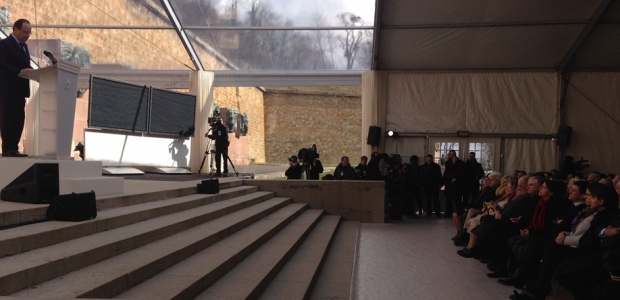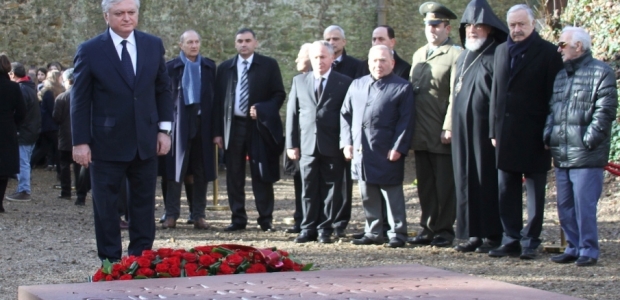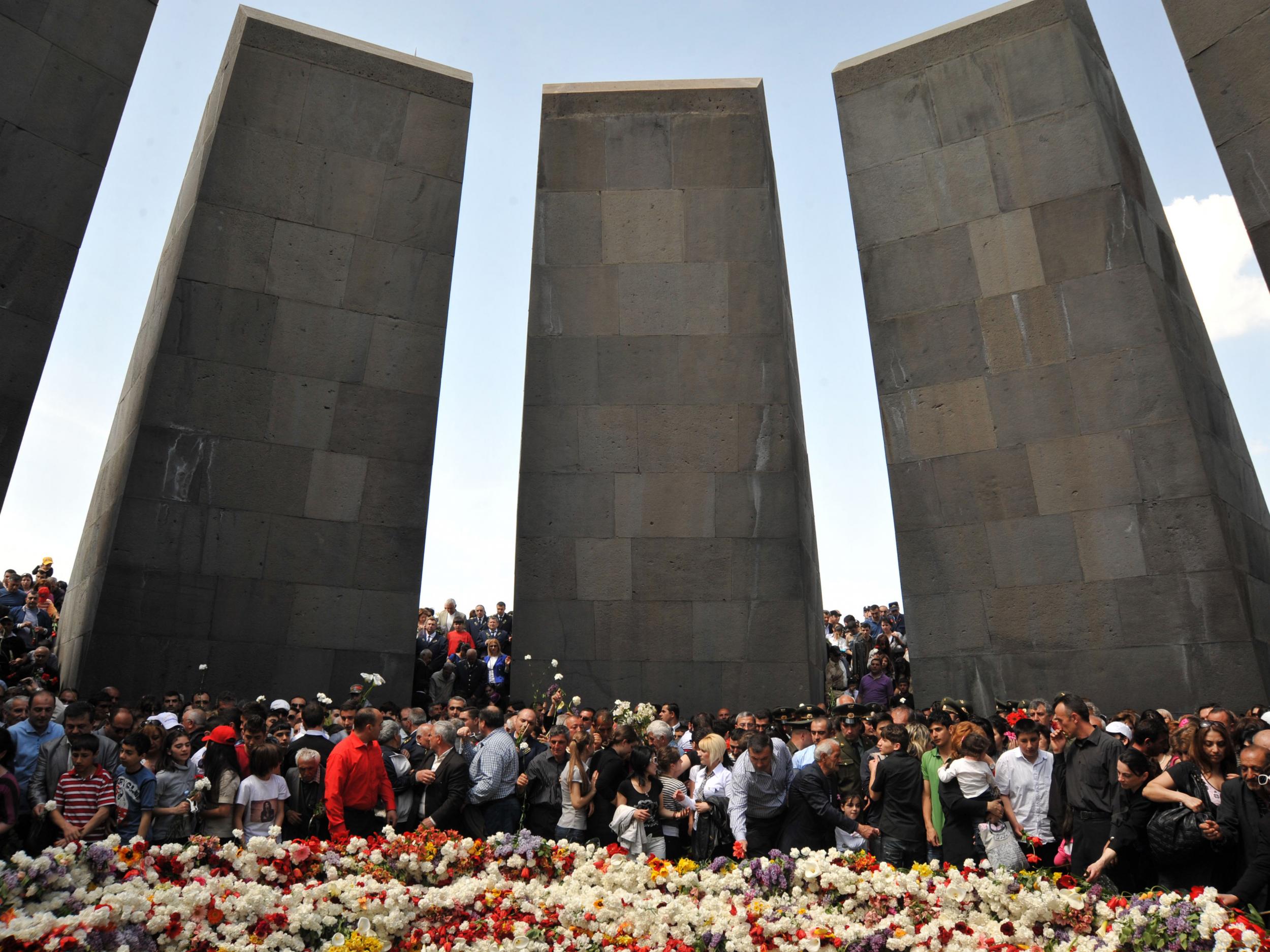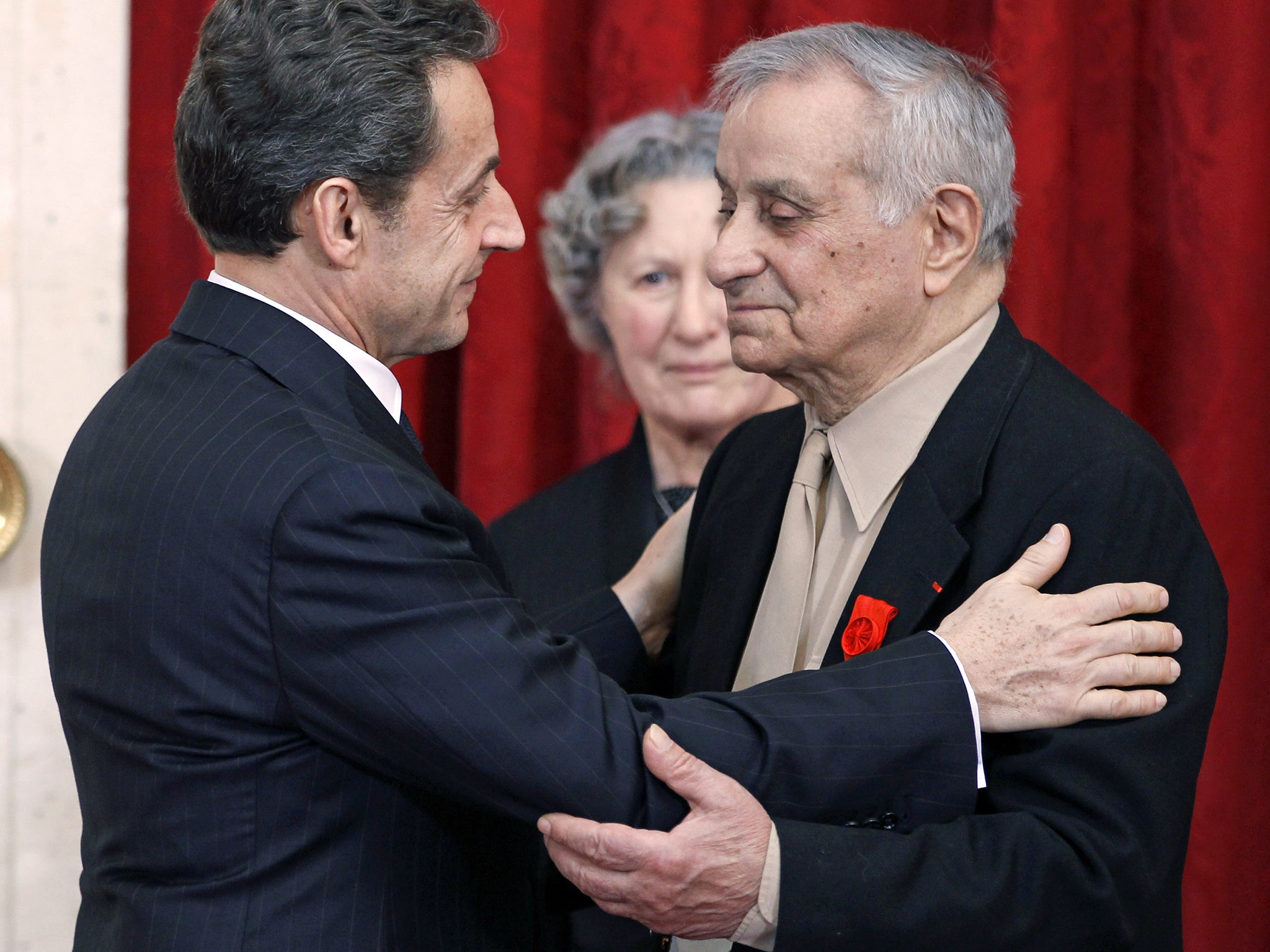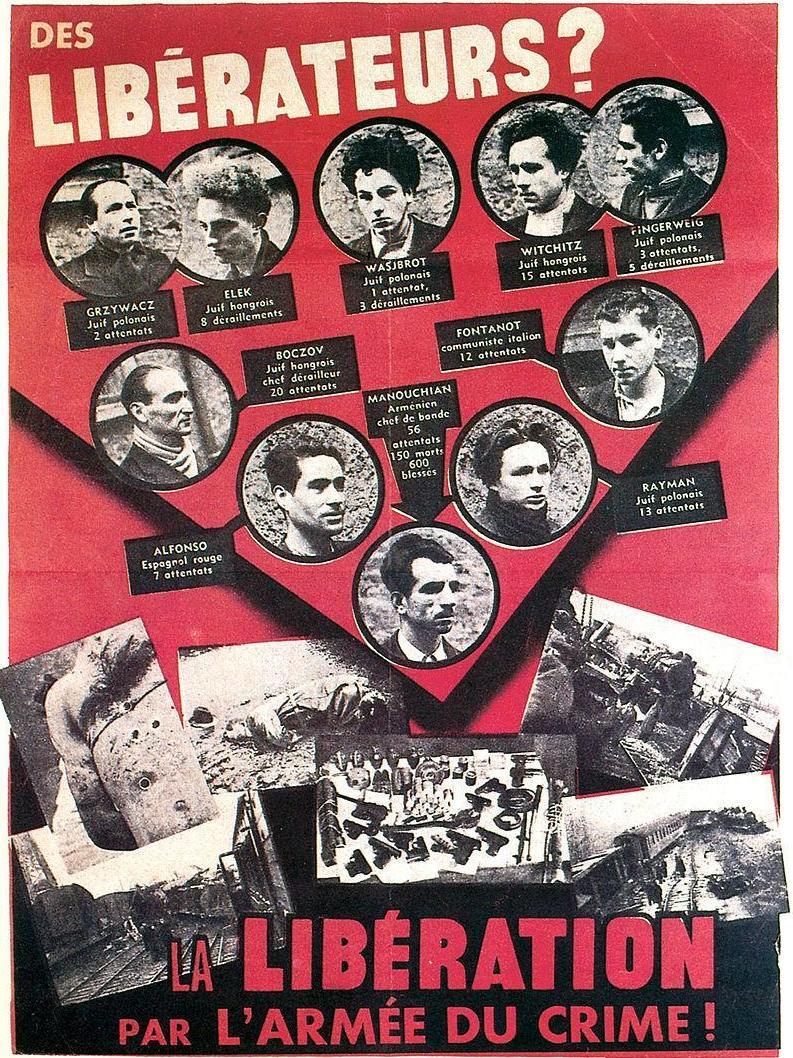
President Hollande attends event dedicated to the 70th anniversary of execution of Missak Manouchian
A commemoration ceremony dedicated to the 70th anniversary of execution of Missak Manouchian and his commanders by Nazis was held in Fort Mont-Valérien fortress in one of the suburbs of Paris.
French President Francois Hollande laid a wreath at the memorial and made a speech. Armenian Foreign Minister Edward Nalbandian laid a wreath on behalf of the Republic of Armenia. The letter Missak Manouchian wrote to his wife Melinee was read out at the event:
Speaking about Manouchian, President Hollande said: “He was one of those survivors of the Armenian Genocide, who settled in France and joined its struggle for liberation. Manouchian was not the only Armenian to sacrifice his life for the freedom of the country.”
My dear Melinée, my beloved little orphan,
In a few hours I will no longer be of this world. We are going to be executed today at 3:00. This is happening to me like an accident in my life; I don’t believe it, but I nevertheless know that I will never see you again.
What can I write you? Everything inside me is confused, yet clear at the same time.
I joined the Army of Liberation as a volunteer, and I die within inches of victory and the final goal. I wish for happiness for all those who will survive and taste the sweetness of the freedom and peace of tomorrow. I’m sure that the French people, and all those who fight for freedom, will know how to honor our memory with dignity. At the moment of death, I proclaim that I have no hatred for the German people, or for anyone at all; everyone will receive what he is due, as punishment and as reward. The German people, and all other people, will live in peace and brotherhood after the war, which will not last much longer. Happiness for all … I have one profound regret, and that’s of not having made you happy; I would so much have liked to have a child with you, as you always wished. So I’d absolutely like you to marry after the war, and, for my happiness, to have a child and, to fulfill my last wish, marry someone who will make you happy. All my goods and all my affairs, I leave them to you and to my nephews. After the war you can request your right to a war pension as my wife, for I die as a regular soldier in the French army of liberation.
With the help of friends who’d like to honor me, you should publish my poems and writings that are worth being read. If possible, you should take my memory to my parents in Armenia. I will soon die with 23 of my comrades, with the courage and the serenity of a man with a peaceful conscience; for, personally, I’ve done no one ill, and if I have, it was without hatred. Today is sunny. It’s in looking at the sun and the beauties of nature that I loved so much that I will say farewell to life and to all of you, my beloved wife, and my beloved friends. I forgive all those who did me evil, or who wanted to do so, with the exception of he who betrayed us to redeem his skin, and those who sold us out. I ardently kiss you, as well as your sister and all those who know me, near and far; I hold you all against my heart. Farewell. Your friend, your comrade, your husband.”
Attending the ceremony were members of the French Government, the Senate and the National Assembly, politicians and public figures, Charles Aznavour, representatives of the Armenian organizations of France.
Edited by Yervant1, 22 February 2014 - 08:55 AM.




